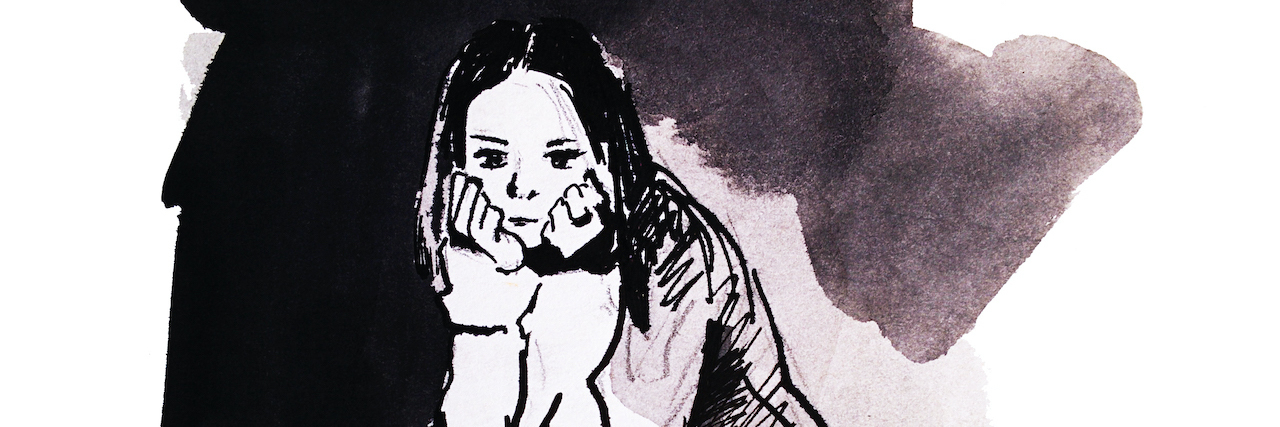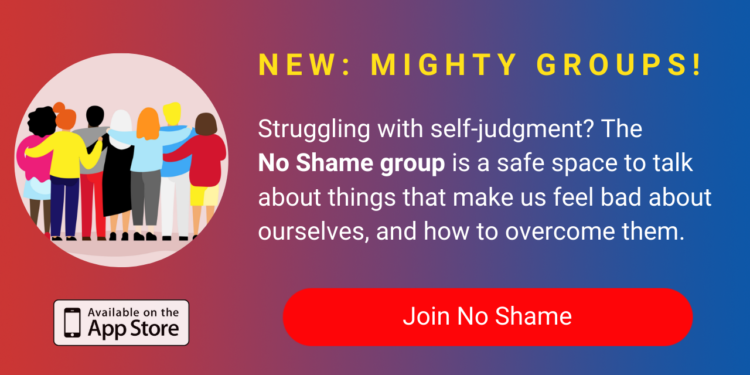Ugly, skinny, hairy, stupid. Those are just some of the insults hurled at me throughout middle and high school.
My very first experience with bullying began at the age of 11. I was threatened, pushed around and beaten. But instead of standing up for myself or asking for help, I cried, and cried and cried a little bit more. I believed those demeaning words truly defined me, and to say that my self-esteem was low would be an understatement. During my early teens, much like any other teenager, I crushed on a boy. He was two grades older than me. I was exhilarated at the thought that someone finally found me pretty enough to express interest in me. Our puppy love didn’t go beyond the occasional meetups at burger joints and innocent handholding. Little did I know that this boy was using me to make his ex-girlfriend jealous.
Fast forward a few months later, I got sidelined, and to make matters worse, this boy started a rumor that I lost my V card to him. You can only imagine how this spread like wildfire, and the baseless scandal was the talk of my entire school and city. I started cutting myself. Every time I sliced my skin open, I felt like I was being cleansed. I then contemplated suicide, convinced I was “too ugly and stupid to be alive.”
These thoughts could have easily unspooled, and the possibility of not being here today doesn’t escape me. I had embarrassed my entire family and there was no reason left for me to live any more. I was too ashamed to tell my mom, and I felt like I didn’t have any friends who would listen. At the time, in the 90’s, there wasn’t enough awareness surrounding bullying. It wasn’t taken seriously, and merely brushed off as normal child behavior. I was eventually transferred to another school and managed to start over, but this reputation stuck with me throughout my teenage years and most of my 20s, leading to years of countless panic attacks and therapy sessions. Thankfully, 20 years later, I am still here and ready to raise awareness about the effects of bullying.
My path towards overcoming the incessant bullying and defamation was twofold: 1) the idea that this could not possibly last forever — it had to end someday — and, 2) I had a little sister who needed me to be the strong sister she always looked up to. I couldn’t possibly give up now. This, however, is not always the case, and unfortunately many teenagers cannot see beyond the current situation they’re in, which could eventually lead to self-harm.
Statistics suggest that suicide is the third leading cause of death amongst young people, and according to a study conducted by Yale, victims of bullying are two to nine times more likely to consider suicide than non-victims. Another study in Britain found that 50 percent of suicides are bullying related. This is quite alarming.
Bullying nowadays takes on many forms, such as cyber bullying, physical bullying and emotional bullying. Recognizing the signs, and taking necessary preventative measures could save lives. Depression, withdrawing from activities, recurring excuses to avoid going to school or participating in activities, an alarming change in eating habits, declining grades, being constantly anxious, and unexplained bruises or injuries, are just some of the classic signs to look out for.
However, most often than not, there are some unusual signs that we may merely mistake for other conditions or brush off as merely rebellious teenager behavior or a tantrum prone child. How do you recognize the signs, and what can you do to help? Here are four uncommon signs that your child is being bullied, based on my personal experience:
1. Projecting (becoming the bully)
Victims of bullying will often project their anger onto their younger siblings or a timid friend, ultimately becoming a bully themselves. This may be mistaken for jealousy; however, it is also a warning sign that your child is being bullied.
Frightened children will often want to feel that they have not completely lost their power, and they still have some control over what goes on in their lives separate to the environment they’re being bullied in. This display of aggression is a form of self-preservation that can be easily mistaken for attention seeking behavior.
2. Panic attacks/anxiety
Panic attacks take on many forms. They are not always a loud, gasping for breath, rocking back and forth episode as the media portrays them to be. They come on suddenly and can sometimes leave their victims in a stupor of silence. Pay attention to signs of sudden withdrawal, fear, sweating and avoidance. This may indicate that the child is experiencing a panic attack. Panic attacks are often indicative of an ongoing issue that requires immediate attention, and when combined with other signs, the culprit often is bullying.
3. Obsession with beauty
Vanity and obsession with outer beauty is a rite of passage for most teens. It is a time when their bodies are undergoing numerous changes ultimately ensuing low self-esteem. It’s one thing when a teenager puts extra effort into their looks, pointing out certain facial or bodily features that they dislike. It’s another when it borders on body dysmorphia. Watch out for self-demeaning language such as “I’m ugly” or “why can’t I like look like so and so” or “if I looked a certain way, people would like me more.” This, although there may be underlying psychological implications, could be a warning that your child is being ridiculed on the basis of his or her physical appearance.
4. Aggressive behavior towards you (the parent)
When a child is being bullied, they sometimes interpret it as a failure from the parent’s side. In the eyes of a child, a parent is someone who is supposed to protect them from all evil and pain. They are nurturing figures who solely exist to love you and ensure your wellbeing is not being compromised. So what happens when your parents cannot protect you? Frustration arises and is commonly directed towards the parents.
So, what measures can you take?
If I could speak to my teen self today I would ask her not to be so harsh on herself, and to quiet the voices telling her she’s unworthy. I would reassure her that everything is going to be OK, and this period will pass. I cannot help but think that if my family were more aware of my being subjected to bullying, then maybe things would have been different.
So to the parents who identify the telltale signs, and who have that uneasy feeling that something is just not right with their child’s behavior, I would say, act. Do not push aside that intuitive feeling warning you something is wrong. Speak to your child, reassure them they can trust you, and speak to the people involved such as teachers and friends. Try to get to the bottom of the problem and help guide them through this distressing period.
And to the kids who are currently being bullied I say, hang in there. You are beautiful, you are smart and most importantly you are worthy. This is not your fault, and you do not have to deal with this alone. Please do not punish yourself. Get some help. Speak to someone you trust. And most importantly know that this will eventually pass and that you will emerge out of this stronger.
Getty image by Maria Kuznetsova


